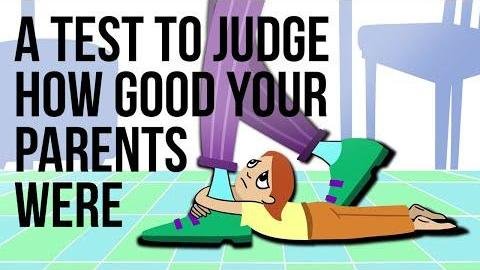Introduce
In the early days, parents’ parenting style was quite authoritarian and they often used beatings to make their children learn. However, over time, parents realize that this approach is not the most effective or emotionally healthy for their children. Parenting has evolved, giving parents more rights and freedom to interact with their children in different ways. While mistakes are still made along the way, parents are now looking for new and better ways to raise their children.
The Art of Parenting 🎭
Raising children is an art that requires a bit of knowledge, and it’s vital to break the cycle of mistakes made by previous generations. Today’s parents have more resources, such as books, to help them raise their children correctly. “How to Talk So Your Kids Will Listen” and “Listen So Your Kids Will Talk” by Adele Faber and Elaine Mazlish are books on effective parenting techniques. . This book provides illustrations and strategies for managing children to make raising children a more enjoyable experience.
The power of emotion💔
The first and most important thing parents should do is talk about feelings. In the past, parents often ignored or blocked their children’s feelings, but today people realize that respecting their children’s feelings is the key to winning their hearts. When children bring problems to their parents, it is important for parents to listen carefully and help children recognize and understand their feelings. Instead of condemning or blocking these feelings, parents should be kind and understanding of their children’s feelings and express that they will try to resolve the problem in a gentle way that their children can understand.
Vent negative emotions🌪️
Children, like adults, can feel stressed and overwhelmed by negative emotions, even about seemingly small problems in life. Raising children is an art and requires a bit of knowledge. Therefore, parents should help their children find other ways to vent these negative emotions. For example, using a punch bag to vent anger can be beneficial for children. Additionally, asking children to draw the problem can help shape their emotions and provide a platform for expression. It’s important to teach children to talk and express their feelings, especially when they may not be able to fully explain how they feel.
Let children know they are heard ✨
A common mistake parents make is not letting their children know that they are heard and understood. Sometimes parents don’t always look for solutions, but instead children long for someone who understands how they feel. Just like adults, children need someone to listen to their problems impartially and provide them with comfort. By stopping blaming and showing children that parents understand how they feel, parents can help children find solutions to problems.
Design with empathy😊🔄
Another way parents can influence their children’s behavior is by giving them choices rather than forcing them to follow their own path. By giving children choices and suggestions, parents can help them feel more involved in decision-making and work better together. Defining what is important to others, rather than defining who they are, can help children self-reflect and help them become the people they want to be. Also, parents should talk about positive things with their children because children notice everything and learn from it. Praising positive qualities rather than constantly rewarding children can give them a better perspective and have a longer-lasting impact on their mental health.
Final score📚🧡
The Book Fair hopes this article will shed light on the art of parenting and the importance of effective communication, empathy and positive thinking in raising children. If you’re interested in learning more about effective parenting techniques, we recommend reading “How to Talk So Your Kids Will Listen” and “Listen So Your Kids Will Talk” by Adele Faber and Elaine Mazlish. You can purchase this book [here] (booklink.com) to learn more about how to effectively talk to your kids and shape them into better people. Happy parenting!
Disclaimer: The video content displayed above was created and is the property of The Book Show. We do not claim any rights to this content and are not in any way endorsing or affiliated with the creators. This video is embedded here for informational/entertainment purposes only. The accompanying articles, although sometimes narrated in the first person, are independently written by our editorial team and do not necessarily reflect the views or expressions of the video creators.






